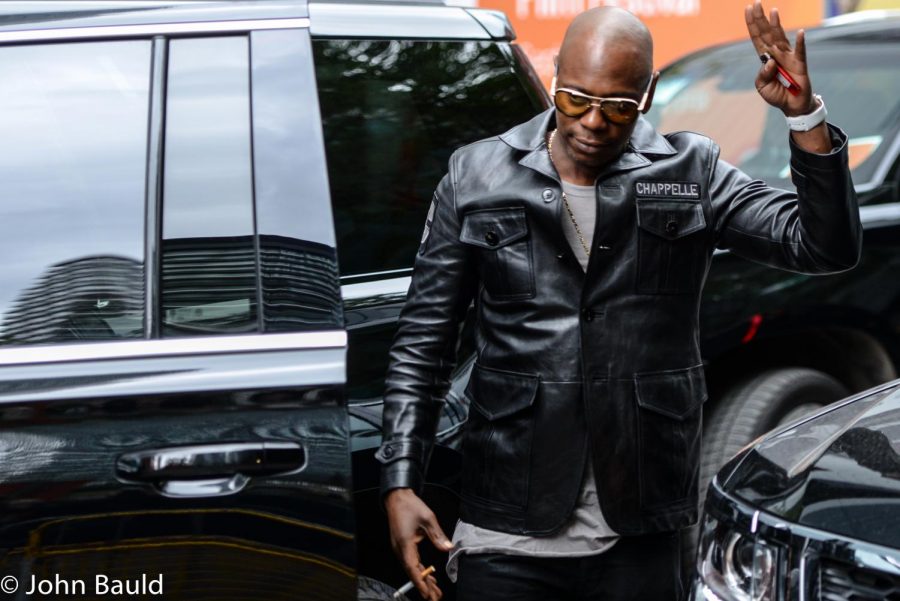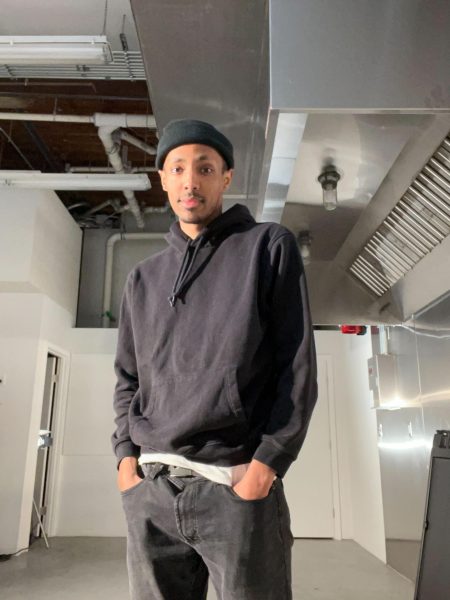Getting to the Heart of Dave Chappelle
In defense of honesty in comedy
Dave Chappelle at the 2018 Toronto International Film Festival
December 13, 2021
Every artist puts themselves in a position to be misunderstood, and Dave Chappelle is no exception.
The comedian isn’t a stranger to controversy, whether it involves turning down a $50 million renewal deal for “Chappelle’s Show” or more recently, when his Netflix documentary special “The Closer” attracted negative press for humor some claimed was transphobic.
Chappelle has reached legendary status as a comedian. But amid this backlash, his new unreleased documentary may be running into difficulties with distribution.
The untitled film, which captures the impact of Chappelle’s spring 2020 outdoor shows during the height of the COVID-19 lockdown, has so far only been screened at U.S. festivals and exclusive celebrity events. One of the featured shows is available on YouTube.
While people may still flock to Chappelle’s shows and laugh at just about anything he says, he’s after far more than laughs — it’s clear he wants to educate his viewers by sparking a conversation on the impact of comedy.
“The Closer”
Chappelle’s “The Closer” featured an emotional full-circle finale, but understandably, not everyone felt that way.
The special spurred walkouts at Netflix when transgender and allied Netflix employees pushed for a content warning in response to how “The Closer” delves into the topic of suicide toward the end.
“The Closer”’s finale puts Chappelle’s last special, “Sticks and Stones” (2019), into perspective. It too garnered negative press and backlash on Twitter, which some speculate was a factor in the suicide of transgender comedian Daphne Dorman, who had previously opened for Chappelle.
The State of Comedy
The controversy only made me curious to see what all the fuss was about. As it stands, I’d say Chappelle is in the right. He knows what he’s doing and understands that the art of comedy has impact, especially when people are watching.
A common expression I’ve heard is “you couldn’t say that today,” which stems from the fear of losing opportunities. However, the history of comedy is contrary to this notion. It’s in being true to themselves that comics gain notoriety and make more impact: take Lenny Bruce, who went as far as to get arrested for vulgarity in 1961 before going on to produce another special in 1966.
“The Midnight Miracle”
Earlier this year, Chappelle made a deal with subscription podcast network Luminary to distribute his podcast “The Midnight Miracle,” which he co-hosts with rappers Talib Kweli and Yasiin Bey.
The podcast’s first episode starts off with Chappelle asking “How do you inspire someone to want to live?”
The simple answer that the hosts and guest Chris Rock came up with was to simply be yourself and be there for others. Although the air attached to comedy can at times feel infallible, the cause and effect are simple.







